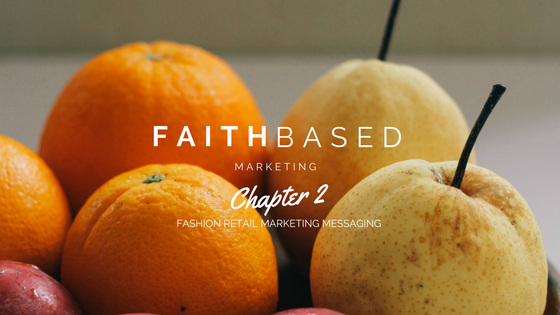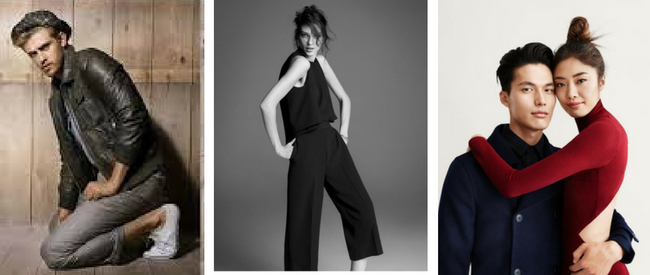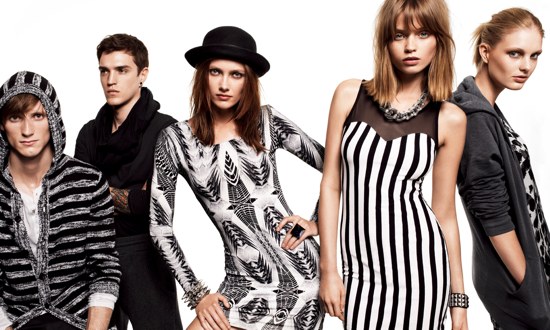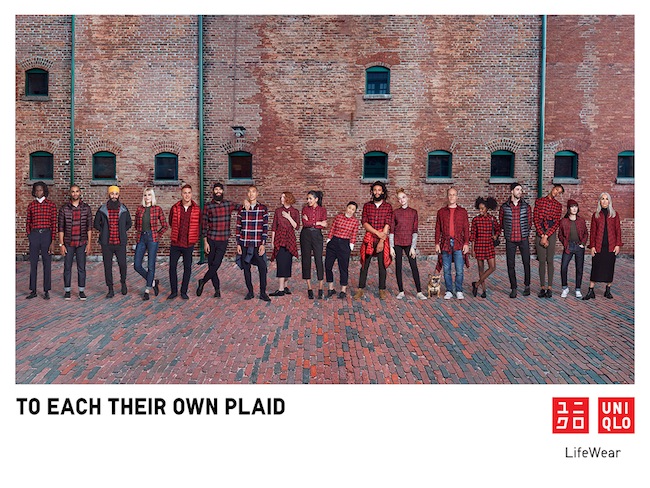Faith Based Marketing Strategies Part 2: Fashion Retail Marketing Messaging
The top brands of fashion retail are experts in the marketing craft, yet some of the predominant themes have become stale, like youth, beauty, and individualism. This article outlines how these conventional themes flop, identifies alternative messaging, and does so using faith-based values. In this second chapter, see how the marketing themes of H&M, Zara, Forever 21, and Club Monaco can be further improved. Get insights into the connection between faith values and consumer aspirations today with Profitworks.

Executive Summary
- Youth, beauty, and individuality are conventional themes in fashion but have challenging implications
- Consumers may end up feeling alienated while also having unmet desires which are deeper than just beauty and individuality
- Embracing faith-based values can help brands reach a deeper level with their consumers
- The tension is resolved by humanizing individuals while marketing and speaking with consumers
Sales & Marketing ROI Podcast: Episode #43
The Fashion Retail Marketing Messaging - Click the link below to listen to the podcast.
Listen to this podcast- click here
Subscribe our podcast now - click here
View a full listing of our podcasts - click here
Traditional Fashion Retailing Messaging
Here are some examples of conventional fashion retail marketing messaging and their predominant themes. Since the apparel product itself is a clear expression of one's image, most marketing messages cater to a variety of lifestyles and self-images.

Source: Fashion Rouge, Fashion Ad Explorer, Fashion Gone Rogue
Theme: Beauty rests in youth or sex appeal
A predominant message is that beauty is held by those with youthfulness and style, this theme is carried across brands like Zara, Club Monaco, and Forever 21. This type of messaging is targeted because the demographic that patrons these retailers are in the age range of 18-35. One of the bets being made with these brands is that this demographic remains growing and strong in order to sustain current growth trajectories. This may also be due to the fact that people in older demographics, like the baby boomers, place fashion at a lower priority in terms of their spending habits. This theme, however, remains an industry standard and is helping brands continue to reach and captivate their target demographic. As of late the fashion retail industry have made significant steps in embracing ethnic diversity in their ads and should be commended in their celebration and openness to realizing that no culture has a monopoly on beauty.
The Challenge with the Beauty is Youthfulness Narrative
The two main challenges with the eternal youth and beauty narrative are:
- As our culture is partially defined by advertising, consumers may feel inadequate if they don't look like models in these ads
- Brands may also risk alienating non-youth segments
- All parties become objectified as we are suppliers or consumers of sexual desire, this reduces people to instincts rather than whole persons
Betting on the eternal youth and beauty narrative has its setbacks as it may promote an unhealthy occupation with staying young and being accepted on the basis of physical appearance. The reality is that youthfulness is a gift and has its seasons, but continuing to make it a prominent focus may cause brands to alienate those who do not fit the mold or who have simply aged past their "prime."
Alternative Ways of Speaking to the Theme of Beauty
One of the things that brands are doing is celebrating individuals and their innate worth. This is deeply steeped in Christian values as each individual is seen as having intrinsic value regardless of their age or how they look. There are other themes that can be used to cater to a wider set of audiences focusing on bringing out great things in each individual:
- Beauty is always in season: brands that promote beauty across generations can aim to promote a more holistic view
- Finding your look: a retailer could position itself to focus on helping individuals find their inner and outer beauty
- Beauty is Outer and Inner Wellness: if a brand wants to recognize and celebrate the entire individual, recognizing qualities like intelligence, wit, character, and empathy could be expressed versus the traditionally stoic characters who may appear divorced from their emotions
- Acceptance based on intrinsic qualities: a retailer could emphasize the fact that acceptance is based on instriinsic qualities of a person rather than their outward aesthetics. The themes of family and community is further given a new definition one that a fashion label could champion in this new family-community paradigm that judges not on looks but cares for people for the sake of people.
These themes are based in Christian values that are actively celebrated in the bible. In the fashion retail industry, beauty and youth continue to resonate with a demographic, but with an endless number of brands telling the same tale, perhaps a more comprehensive and holistic approach to beauty is required to cut through the noise. While the nature of sex and intimacy is also addressed in the relationhip of an enduring marriage. Dove is a great example of exemplifying a deeper level of beauty and appeal while fostering a more healthy image for girls in their True Beauty campaign
Theme: Individualism is Paramount
Walking in with the same outfit as someone else can sometimes be uncomfortable. This may point to a deeper fixation within our society surrounding individualism. One of the trademarks of post-modern society is the concept of individualism and how people are free to express themselves without considering others in their family or social circles. In the ad below from H&M, each of the models has a unique flair to their ensemble. This is a standard practice as ads featuring new fashion seldom can afford to waste space featuring the same outfit. Celebrating individuality and personality is, on the whole, a great thing and an industry standard.

The Challenge with Individuality as Paramount Theme
The two main challenges with the focus on individuality are:
- A brand itself is a unifying theme that runs counter to individualism
- Not all consumers desire to be different
- Without connection and interrelatedness, individuality is less rich
Despite the fashion industry focusing on individuality and creativity, there still remains a common thread in every brand's designs - otherwise, the brand's identity would be lost. Further, there are consumers who are pleased with having functional clothing, many of these may be more resonant with the atheltic apparel industry or high volme retailers. Another downfall with the individuality theme is that without the influences of a family, city, and shared experiences, personality and uniqueness are hollow.
Alternative Marketing Messaging to Address Individuality
The new message for those seeking to express their individuality addresses their underlying desires and aspirations. There are numerous reasons individuality is desired by consumers. Some of these promient lines of thought involve the need for significance based on unique features, a desire to be heard through their values and fashion, and a desire for acceptance. Looking at these underlying themes we can imagine messaging that not only celebrates individuality but also speaks to the unexpressed needs of an individual.
- Consistent significance: retailers can speak to how individuals are significant and valued whether they stand out or are simply comfortable as part of a crowd
- Loud and clear: retailers can also connect with their consumers by listening and acknowledging the need to be heard
- Acceptance: fashion brands can also recognize individuals as being more than their achievements, failures, or other qualities, possibly the most humanizing messaging out there
- Balancing individuality and connectedness: brands that celebrate individuals and their relationships could also provide fresh messaging to consumers, as social circles influences and help shape who we are, in some sense we are who we know.
An honest reflection on faith-based values can also help lead marketers to realizing these themes while providing deeper resources for celebrating the entire individual. Some brands have also begun to take note of the theme of individuality and connectness, most notably Uniqlo.

Source: Marketing Mag
The fashion retail industry is an incredibly rich and nuanced field. Its themes and narratives are expansive and this article seeks to inspire readers to think differently about fashion messaging. Often times by trying to over-emphasize one theme like beauty in youth or individualism, we unknowingly dehumanize individuals. The challenge then is to take the craft of fashion retailing marketing to a new level that recognizes an individual for their richness and relatedness.
Theme: You are what you Wear

Not only relegated in the fashion industry but consumers somtimes purchase products to make a statement about who they are. This is in one part how people will try to define you by what you wear and the car you drive. Ultimately people ascribe a certain stature to people who wear LV, drive Ashton Martins, or drink Starbucks. People make approximations because getting to know each person down to their very core takes alot of time. This theme is also broadly used to entice consumers because its alwso a way that brands need to cater to customer loyalty. When comparing two designer bags they are both clads of leather assembled by a combination of machine and people, but its the brand and the values it stands for that command a different price. Similar to how Coach charges a different price than Kate Spade- people by products because they are also making a statement.
The Challenge with Having an Identity Based on Brand Products
Themain challenges an identity based on fashion brands are:
- People who can't afford these brands may feel bad, meaning lower self esteem for people who are not inherently flawed because of their brand choices
- It means indirectly paying for people's love, admiration, or envy - which often times is difficult to sustainbly garner
- Satisfaction is ultimately elusive, because not everyone like your brand; in the end it's kind of a flawed illusion
Whenever people tie their identity to outward achievement, they are usually bound to be dissappointed. Fundamentally we as humans will make mistakes and basing self worth and value on outward products and achievements may work for the outliers, for a time, but to the massess it doesn't hold water. An alternative messaging is required to reach people in a healthy and sustainable way. Brands can take this opportunity to move their marketing dialogue away from if you have x you will make it.
Alternative Marketing Messaging to Address Identity Based on Externals Alone
Our bet is that a series of companies that helps people truly found themselves on personality and a gospel world view will take the lead in the marketing arena. This is because these companies are ultimately serving their customers better by helping consumers realize what is really important.
- Fashion is endlessly intriguing but so are you: retailers can focus on how their products are made by real creative, humurous, and high calible people just like them. This helps moves the conversation from outward to inward beauty
- Uncover the Humour Behind Paying People to Like you: fashion marketers can even run a campaign on the hillarity that ensues when trying to pay someone to like them and how long that actually lasts, while pointing their clothes and company to being more substantial and enduring than fair weather friends
- Freedom without Control: the desire to purchase affirmation is one in which individual wish to control how people see them. Recognizing that not everyone will ultimately like you and appreciating those that stand by us is a powerful theme that is often eluded to and for Christians the one we need affirmation from approves of us.
An honest reflection on faith-based values can also help lead marketers to realizing these themes while providing deeper resources for celebrating the entire individual. Some brands have also begun to take note of the theme of individuality and connectness, most notably Uniqlo.
Theme: Spending More Means you get More

This theme caters more to a reflection by marketers in whether the best thing for consumers is to create a brand that is overly inflated so as to charge more for better profits and returns. It works because its psychologically demonstrated that when people spend more they think they are also receiving more value. Vox recently did a great documentary on how Expensive Wine is for Suckers, and well if we extrapolate the results from tastes to personal satisfaction than expensive products are better. But this is because we psychologically believe it to be and are wired for it. Marketers have taken this approach for a very long time to charging exorbitant amounts rather than offering value. The challenge here is that individuals and communities may not thrive on this dynamic as it perpetuates the haves and have nots mentality. This leads to distancing between people within a city, widening the gap between people and their neighbours.
The Dillemma with Marketing for Expensive Goods
The two main challenges with the focus on luxury priced fashion are:
- It creates exclusiviity and antagonizes people against each other because they make negative assumptions about one another
- Pressures people to be decadent so that fewer resources can be directed towards resolving proverty or education gaps
- Can create an addictive cycle that ultimately risk the consumes ability to earn in order to purchase
The underlying need compulsive shoppers have, is the hope that the activity of shoping and spending big money will help them relieve stress or resolve challenges in their personal lives. Yet this is an illussion since shopping is a temporary fix rather than a sustainable solution. Overtime the dopamine release that comes from shopping require more and more stimulus leading to increasingly aggressive shopping behaviour that isn't responsible.
Alternative Marketing Messaging for Luxury Fashion
Here are some alternative messaging that luxury retailers can offer
- Enjoy the good things in life: point consumers to seeing that life is more than just fashion and that ultimately relationships with people and creator of fashion itself ,are the most rewarding things in life
- Offer consumers help with personal challengers: recognizing that some consumers may be over-expending on their products can actually help save clients from burning through their wallets before its too late. Better for both company and consumer in the long run.
- Create an everyday line: by offering a modest economical line a brand can serve and cater to a wider number of consumers, while also offering people the perspective that some days are just normal days where humans can be humans
Steps to Cutting the Noise in Traditional Marketing
Faith-based values marketing is an approach to help companies reach audiences on a deeper level, helping to establish and position brands into a new stratosphere of recognition and appreciation for consumers and their humanity, including their strengths, flaws, and potential. Here are steps to helping uncover alternative and distruptive marketing messaging that hits home:
- Identify the values of current marketing efforts
- Analyze these values and the aspirations that they are addressing
- Go deeper and understand alternatives to meeting these expectations and desires
- Provide alternative messaging to address these issues
- Review messaging to see if it dehumanizes or celebrates a person and community's richness
- Elaborate on messaging and further demonstrate how it addresses desires and aspirations for the demographic

Become The Leader In Your Market
"I've found Profitworks to be tenacious and adaptable to the challenges our industry possesses."
-Blair - Business Owner & Customer
Read More About What Our Customers Say
No matter your industry, faith-based marketing identifies the deeper needs and aspirations of your consumers, helping brands humanize their messaging. Profitworks helps companies of all shapes and sizes to create the most meaningful faith-based marketing initiatives. Our services include online content writing and A/B testing of messages and layouts to best engage individuals of faith backgrounds. The team also is comprised entirely of Christian professionals helping you understand the unique customer journey of individuals from secular and religious backgrounds.
Other Articles You Might Be Interested In
Coming soon in our guide for Faith-Based Marketing Strategies:
- Chapter 1 - The Business Case for Faith-Based Marketing
- Chapter 2 - Cutting Through the Noise in your Industry's Marketing
- Chapter 3 - Connecting with Your Demographic from Information to Interaction
- Chapter 4 - Building Brand Loyalty versus Transactions